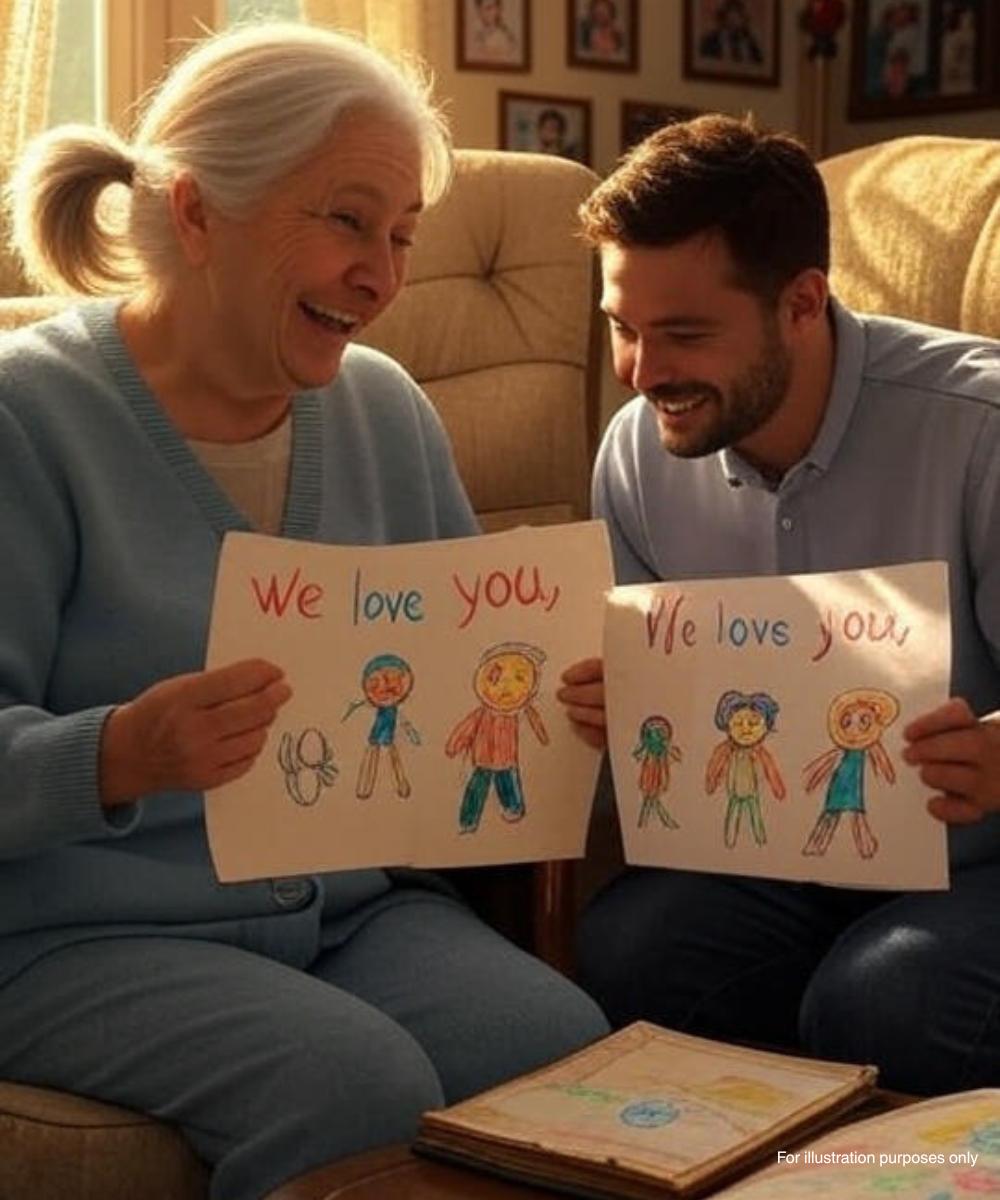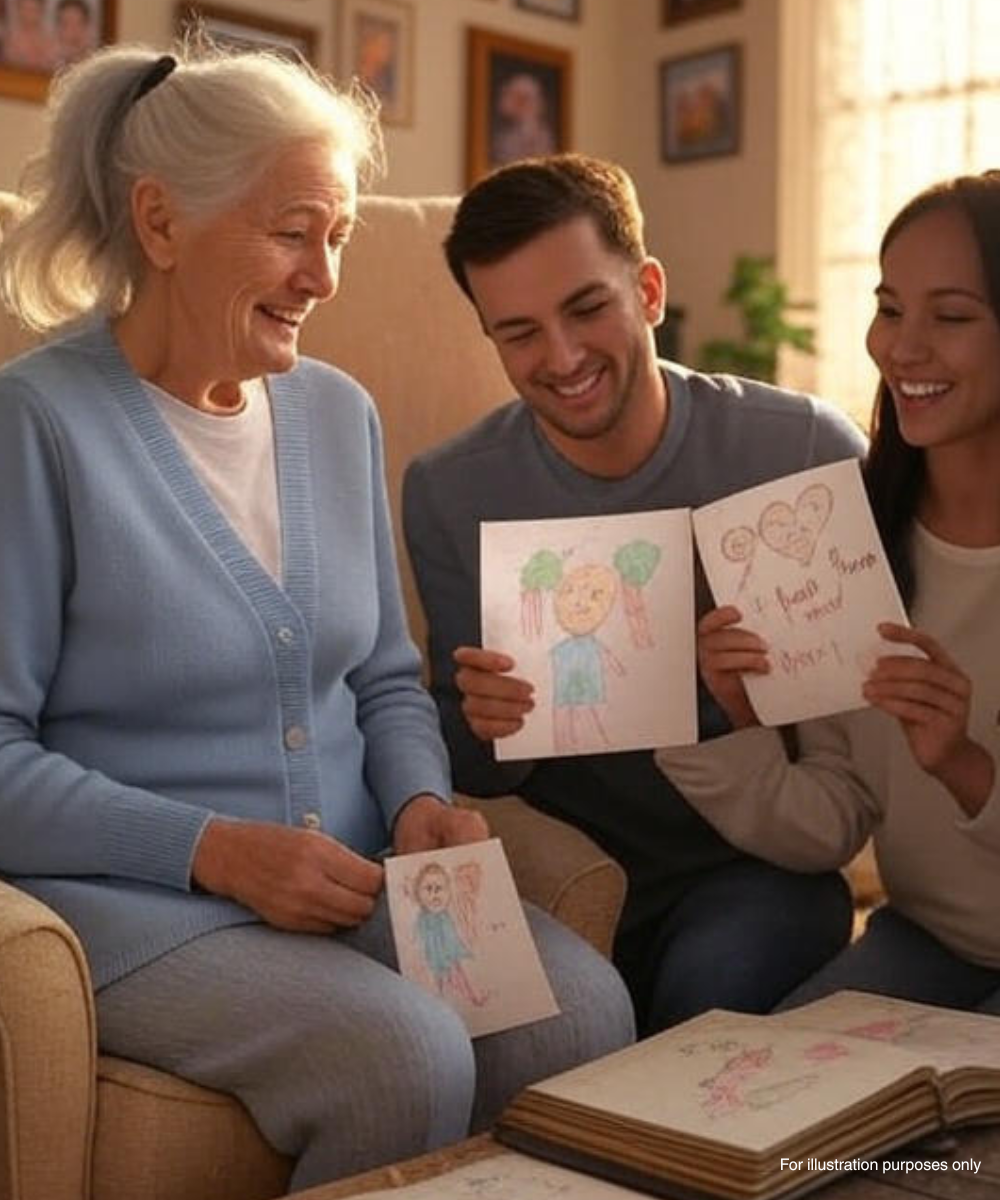Most stories begin with a plan. A choice. A path laid out.
Mine began with a knock on the classroom door… and two broken children I hadn’t planned for at all.
It was October. The kind of Oregon morning where fog curls along the ground like breath and the trees wear their colors like quiet grief. I was 39, unmarried, and mostly content teaching literature at Willow Ridge Middle School. My life was quiet—structured, simple. I liked it that way.
Until that morning.
Principal Rowley was waiting outside my classroom with a look that didn’t match the usual shuffle of school routine.
“Grace,” he said gently, “do you remember Eli and Emma Harrison?”
I did.
First-graders. Twins. Emma with wild curls and a voice two sizes too big. Eli, quiet, always watching her with cautious eyes. I’d helped with their reading group the week before. She had asked if Shakespeare was “still alive.”
“They lost their parents last night,” the principal said. “Car accident. No next of kin.”
I don’t remember how I got to the district office, only that the hallway smelled like coffee and lemon cleaner, and that two children were curled together on a bench, holding hands like they were all the other had left.
When Emma saw me, she didn’t speak. Just reached for my sweater sleeve and didn’t let go.

I sat down beside them. Eli leaned into my lap. I didn’t speak either. What could I possibly say?
All I knew was this: I wasn’t going to walk away.
By Friday, I had filed the first set of foster paperwork.
People thought I had lost my mind. A single woman with a teacher’s salary and no parenting experience? But I wasn’t thinking with logic. I was thinking with something far deeper—something that said: They need you.
What I didn’t know then was how much I would need them, too.
The Becoming
Eli had nightmares. Every night. At 2:13 a.m., like clockwork. I started keeping a chair next to his bed. Humming lullabies I hadn’t heard in thirty years.
Emma shadowed me like a second skin. If I stepped out of a room, she’d panic. If I left for groceries, she’d sit by the front door until I came back.
The world had gutted them. I was just trying to keep us all standing.
My small house filled with mismatched furniture and lesson plans soon also overflowed with lunchboxes, library books, and sock puppets. I googled how to braid hair. I learned to budget down to the penny. I learned that love doesn’t always look like joy—it often looks like exhaustion, sacrifice, and showing up anyway.
But slowly, something changed.
Laughter returned.
We made pancakes on Sundays, watched movies on Fridays, and danced to terrible pop songs while brushing teeth.
They started calling me “Miss G.” Then “Mom.”
And one Christmas, they handed me a crayon drawing of the three of us holding hands under a lopsided star. I cried so hard I had to leave the room. That drawing still hangs in my hallway.
Time Does What It Does
They grew.
Eli built rockets in the backyard and melted part of my microwave trying to simulate lava flow. Emma wrote poems on the backs of receipts and hid them in my school bag.
We fought sometimes. Slammed doors. I worried I wasn’t enough. That they needed a real parent, not someone who had stumbled into this.
But love isn’t about being perfect.
It’s about staying.
They graduated with honors. Got scholarships. I clapped like a madwoman in the front row, mascara running, throat raw from cheering.
And then… they left.
College. Jobs. Grown-up lives.
The house was still. Too still.
I kept teaching. Kept baking. Sent care packages with cookies and notes and terrible jokes only they would laugh at.
And then, just like that, 22 years passed.
The Doorbell
It rang one ordinary Thursday afternoon. I was grading essays, my hair silvered, my joints stiff.
When I opened the door, I froze.

Eli and Emma. Grown. Smiling. Holding hands like they were still six years old and scared of the dark.
“Surprise, Mom,” Emma said, tears already brimming in her eyes.
They sat me down. I made tea with trembling hands. They were hiding something—I could tell. The kind of secret that makes hearts beat faster.
Emma slid an envelope across the table.
“Open it.”
Inside: blueprints, signatures, and a name I hadn’t heard in years… mine.
Holloway Learning Center – A School for Underprivileged Youth
I looked up. Confused. Shaken.
Eli spoke first. “We bought an old building downtown. Renovated it. Got grants. Called in favors.”
Emma’s voice cracked. “We built a school, Mom. In your name. For kids like us—who needed someone when the world went silent.”
“We want you to cut the ribbon next month,” Eli said, reaching across the table. “You gave us a home. This is our way of giving one back.”
I broke then. The tears came, and for once, I didn’t hold them back.
Legacy
The ribbon-cutting felt like a dream. The building was bright, beautiful, buzzing with color and art. The walls were painted with murals of books and stars, of hands reaching toward light.
Above the entrance:
The Holloway Learning Center
“Where every child deserves a second chance.”
I spoke at the podium that day, but I barely remember the words. Something about love. About the unexpected. About the courage it takes to say “yes” when life gives you no time to plan.
Later, as the crowd cleared and the sun dipped low, Emma leaned in.
“You didn’t just give us shelter. You gave us possibility. And now it’s time we gave it to others.”
Epilogue
My house is no longer quiet.
It’s filled with photos—graduations, birthdays, that ribbon-cutting day. And now, new pictures from the school I didn’t build, but somehow created.
I never married. Never gave birth.
But I became a mother.
To two children who once arrived holding nothing but each other… and who, years later, returned holding the world.
And the truth is, I didn’t just save them.
They saved me, too.